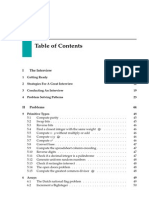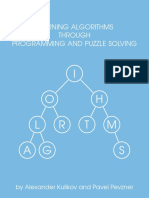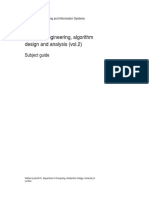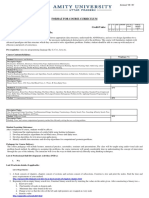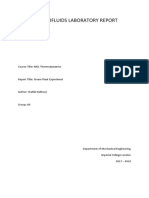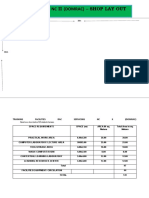0% found this document useful (0 votes)
159 views9 pagesC++ Coding Competition
The document provides a comprehensive guide for preparing for ICPC-style C++ coding competitions, emphasizing the importance of mastering algorithms, data structures, and problem-solving strategies. It covers essential topics such as graph algorithms, dynamic programming, and string algorithms, along with practical coding challenges categorized by difficulty. Additionally, it offers tips for effective team collaboration, time management, and resources for further learning.
Uploaded by
hydrinairisCopyright
© © All Rights Reserved
We take content rights seriously. If you suspect this is your content, claim it here.
Available Formats
Download as DOCX, PDF, TXT or read online on Scribd
0% found this document useful (0 votes)
159 views9 pagesC++ Coding Competition
The document provides a comprehensive guide for preparing for ICPC-style C++ coding competitions, emphasizing the importance of mastering algorithms, data structures, and problem-solving strategies. It covers essential topics such as graph algorithms, dynamic programming, and string algorithms, along with practical coding challenges categorized by difficulty. Additionally, it offers tips for effective team collaboration, time management, and resources for further learning.
Uploaded by
hydrinairisCopyright
© © All Rights Reserved
We take content rights seriously. If you suspect this is your content, claim it here.
Available Formats
Download as DOCX, PDF, TXT or read online on Scribd
/ 9






